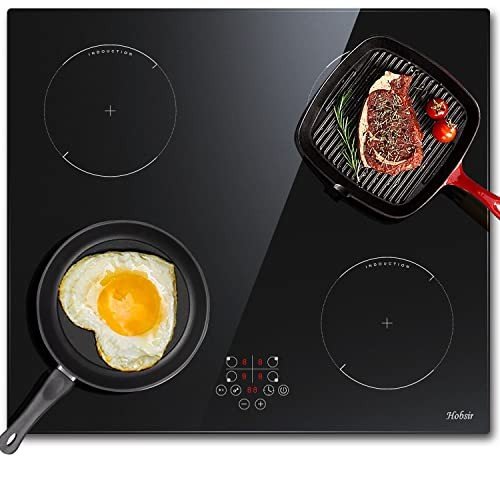Understanding Cookers and Hobs: A Comprehensive Guide
Cooking is an important element of every day life, and the advancement of kitchen appliances plays a considerable role in how efficiently and effectively individuals prepare their meals. Among Electric Oven Online , cookers and hobs are two of the most essential instruments discovered in contemporary cooking areas. This short article explores the differences between cookers and hobs, analyzes their various types, and provides insights on their functions, upkeep, and choice procedure.
What are Cookers and Hobs?
Cookers
Cookers are comprehensive kitchen appliances developed for cooking jobs, typically integrating an oven and a hob. They are available in numerous setups and types, accommodating diverse cooking requirements and choices.
Hobs
Hobs, on the other hand, are more focused devices primarily used for boiling, frying, and other stovetop cooking methods. Hobs can be standalone systems or an integrated part of larger cookers.
| Function | Cookers | Hobs |
|---|---|---|
| Function | Combines oven and hob | Stovetop cooking only |
| Design | All-in-one unit | Different system or integrated |
| Types | Electric, gas, double fuel | Gas, electric, induction |
| Installation | Allows for more flexibility | Built into the countertop |
| Price Range | Normally higher | Differs commonly |
Kinds of Cookers
1. Electric Cookers
Electric cookers utilize electrical power as their main power source. They often feature a built-in oven and several cooking zones on the hob.
Benefits:
- Even heat circulation
- Available in various styles (e.g., freestanding, built-in)
2. Gas Cookers
Gas cookers work on natural gas or liquefied petroleum gas (LPG). They use instant heat control, making them a preferred among expert chefs.
Advantages:
- Instant heat changes
- More affordable functional expenses
3. Dual Fuel Cookers
Dual fuel cookers integrate the heat of gas with the effectiveness of electric ovens. This setup permits the best of both worlds, offering control and constant results.
Advantages:
- Flexible cooking alternatives
- Exact control over stovetop cooking and baking
4. Range Cookers
Range cookers are bigger and more powerful than basic cookers, featuring multiple ovens and hobs for extensive cooking tasks.
Advantages:
- Ideal for large households or cooking for occasions
- Provides various cooking options in one appliance
Types of Hobs
1. Gas Hobs
Gas hobs are preferred for their quick heating and strong flame, making them outstanding for burning and stir-frying.
Advantages:
- Instant heat and control
- Compatible with any type of cookware
2. Electric Hobs
Electric hobs warm up utilizing electric coils or glass-ceramic surfaces, supplying a modern-day look and efficient cooking.
Benefits:
- Easier to clean
- Consistent surface area appropriate for various pots and pans
3. Induction Hobs
Induction hobs utilize magnetic fields to heat pots and pans straight, offering quick and energy-efficient cooking.
Benefits:
- Safe (cool surface area after getting rid of cookware)
- Energy-efficient and exact
4. Solid Plate Hobs
These traditional hobs use strong electric plates that warm up slowly.
Benefits:
- Rugged and long lasting
- Generally more budget-friendly than other types
Key Features to Consider
When choosing a cooker or hob, a number of functions should be taken into account:
- Size and Space: Consider the size of your kitchen and the amount of work area needed.
- Cooking Style: Choose based upon choice-- gas for control, induction for performance, and so on.
- Efficiency Ratings: Look for energy-efficient models to decrease utility bills.
- Ease of Cleaning: Smooth surfaces facilitate easy maintenance.
- Security Features: Automatic shutoff, flame failure gadgets, and kid locks enhance safety.
Maintenance Tips
Preserving cookers and hobs lengthens their life expectancy and makes sure safe operations.
- Routine Cleaning: Wipe down surface areas after use to avoid accumulation.
- Examine Seals: Check oven door seals regularly for wear and tear to preserve performance.
- Service Regularly: Schedule expert servicing at least once a year.
- Ideal Cookware: Use pots and pans proper for your hob type to avoid damage.
Regularly Asked Questions (FAQs)
What is the distinction in between a cooker and a hob?
A cooker combines an oven and hob in one system, while a hob is normally a standalone appliance for stovetop cooking.
Do I need an expert to install a gas cooker or hob?
Yes, professional installation is recommended for gas devices to make sure security and compliance with regional regulations.
Can I use any type of pots and pans on induction hobs?
Induction hobs need magnetic pots and pans. Stainless-steel or cast iron pots work best. Non-magnetic materials will not warm up.
Are electric cookers more energy-efficient than gas cookers?
While both have advantages, electric cookers tend to be more energy-efficient total, specifically with modern-day, high-efficiency designs.
How frequently should I clean my cooker or hob?
It is best to clean them after each usage and perform a comprehensive cleansing weekly to prevent buildup and residue.
Comprehending the distinctions, functions, types, and maintenance tips for cookers and hobs is necessary for any home cook. By choosing the ideal home appliance suited to their culinary requirements, users can improve their cooking experience, making meal preparation an effective and pleasurable chore. Whether selecting the instantaneous control of gas or the sleek efficiency of induction, picking the proper cooker or hob can cause an especially enhanced kitchen experience.

